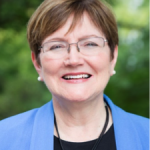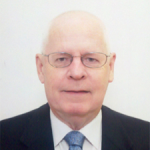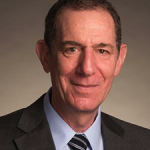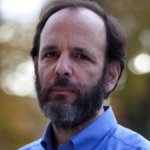Highly Integrated Basic and Applied Research
Program Areas – Science and Technology Policy, Education and Engagement
Participant Profiles
 |
Henry Artigues Henry Artigues serves as the Director for External Partnerships and Economic Development at Florida International University. In this role, Henry represents FIU research interests in Washington DC in an effort to solidify relationships with federal agencies and industry groups. Henry has been with the university for 13 years in various roles supporting the university’s research mission. He has led the day to day research operations for multiple colleges and research centers and led initiatives in the office of research development with the focus of training junior faculty pursuing research careers. In addition to his role at FIU, Henry is also works closely with APLU’s Tech Transfer evolution group. |
 |
Ann Austin Ann Austin is a Professor of Higher, Adult, and Lifelong Education at Michigan State University, where she also serves as Associate Dean for Research in the College of Education and Assistant Provost for Faculty Development–Career Paths. Recently she was on leave for almost two years to serve as a Program Director in the Division of Undergraduate Education at the National Science Foundation in Washington, D.C. Her research concerns organizational change, faculty careers, teaching and learning in higher education, doctoral education, and reform in STEM education. She is a Fellow of the American Educational Research Association (AERA), a Past-President of the Association for the Study of Higher Education (ASHE), Co-PI of the Center for the Integration of Research, Teaching, and Learning (CIRTL), funded by the U.S. National Science Foundation (NSF). |
 |
Roger Benjamin Roger Benjamin has been president of CAE, an education assessment testing organization since 2005. He was research scientist at RAND from 1990 to 2005 (director of RAND Education, 1994-1999 and director of CAE from 1996 to 2004). Before that he was associate dean and executive officer, the College of Liberal Arts, the University of Minnesota, 1980-83, provost and senior vice chancellor, at the University of Pittsburgh (1983-86) and provost at the University of Minnesota (1986-88). He was professor of political science at both institutions from 1966-1989. He is the author or co-author of over 70 publications, including 9 authored, co-authored or edited books and 12 monographs. Among these works are The Limits of Politics, The Historical Nature of Social Scientific Knowledge, The Democratic State, The Redesign of Governance in Higher Education, The Democratic Purposes of Education, The New Limits of Education Policy, and Pasteur’s Quadrant in Higher Education, forthcoming. |
 |
Robert Briber Robert (Rob) Briber is a professor of Materials Science and Engineering and Associate Dean for Research for the College of Engineering at the University of Maryland. He was Chair of the Department of the Materials Science and Engineering at the University of Maryland from 2003-2015. His research areas are in the physics of polymers and the structural characterization of soft materials. He is a past President of the Neutron Scattering Society of America, a Fellow of the American Physical Society and of the Neutron Scattering Society of America, a recipient of the Department of Commerce Bronze Medal, a University of Maryland Distinguished-Scholar Teacher, and a former editor of the Journal of Polymer Science. |
 |
Sandra Brown Sandra (Sandy) Brown is Vice Chancellor for Research and a Distinguished Professor of Psychology and Psychiatry at UC San Diego. Her pioneering studies of cognitive features of youth addiction and adolescent development have led to 26 federally funded grants including the current National Consortium on Alcohol and Neurodevelopment in Adolescence (NCANDA) and Adolescent Brain Cognitive Development (ABCD), which is the largest longitudinal study of youth brain development ever funded by NIH. In addition to over 300 peer reviewed publications and one book (Adolescent Substance Abuse, Oxford Press), she has served as President of the Society of Addiction Psychology and on the Board of Directors of the American Psychological Association and Research Society on Alcoholism. She is involved in addiction prevention and intervention at the regional, state, and national levels and helped lead NIAAA’s effort to establish national screening and early intervention guidelines for youth. |
 |
Murali Chandrashekaran Murali Chandashekaran is the Fred H. Siller Professor of Marketing and Behavioural Science, and Senior Associate Dean for Strategic Partnerships and Global Initiatives for the Sauder School of Business. He is also the Chair of the Americas region for the Partnership in International Network, a consortium of 60 leading business schools globally, whose members share best practices, and foster international student exchanges and joint programs. Murali is widely-published in leading academic business journals in the areas of innovation generation and diffusion, customer satisfaction, human judgment uncertainty, and the link between market-based firm assets and long-term shareholder value. |
 |
Rena Cotsones Rena Cotsones is Associate Vice President of Outreach, Engagement and Regional Development for Northern Illinois University. She works with NIU and regional business, community and government leaders to create and implement collaborative approaches to advancing educational attainment, economic development, workforce development and innovation in the northern Illinois/Chicago region. Rena provided leadership for a collaborative initiative which won a federal Jobs and Innovation Accelerator challenge grant to support the aerospace cluster in Rockford, Illinois. The resulting focus on engineering workforce development led to the establishment of a community-based, industry-integrated bachelor’s-level engineering program offered in partnership with the local community college. Rena worked with leaders of the Chicago-based Digital Manufacturing & Design Innovation Institute (DMDII) to create a regional chapter model, helping to facilitate engagement of small and mid-sized manufacturers in this America Makes institute. |
 |
Camille Crittenden Camille Crittenden serves as Deputy Director of CITRIS and the Banatao Institute, Director of the CITRIS Connected Communities Initiative. Prior to coming to CITRIS in 2012, she was Executive Director of the Human Rights Center at Berkeley Law, where she helped to develop its program in human rights, technology, and new media. She has written and spoken widely on these topics, as well as technology applications for civic engagement, government transparency and accountability, IoT and sustainability, and the digital divide. She held previous positions as Assistant Dean for Development with International and Area Studies at UC Berkeley and in development and public relations at University of California Press and San Francisco Opera. She earned an MA and Ph.D. from Duke University. |
 |
William Dabars William (Will) Dabars is Senior Research Fellow for University Design and Senior Director of Research for the New American University in the Office of the President, Arizona State University, where he is also an associate research professor in the School of Historical, Philosophical, and Religious Studies, and an affiliate scholar in the Consortium for Science, Policy, and Outcomes (CSPO). He is the coauthor, with Michael M. Crow, of Designing the New American University (Baltimore: Johns Hopkins University Press, 2015). He previously served in various research capacities for the University of Southern California, University of California, Santa Barbara, and the Getty Research Institute, one of the operating programs of the J. Paul Getty Trust. |
 |
Howard Gobstein Howard Gobstein is responsible for university policy efforts and improvements pertaining to research, STEM education and economic development, and initiated SMTI as a key APLU effort. As Executive Vice President of APLU, he has a major role in project coordination and association strategy, as well as working closely with the APLU president and vice-president/chief academic officer to draw on their expertise and respective communities of presidents and provosts. His past positions include Associate Vice President for governmental affairs and Director of Federal Relations at Michigan State University, Senior Policy Analyst in the Office of Science and Technology in the Executive Office of the President, and Vice President and Senior Program Officer at the Association of American Universities (AAU). |
 |
Cynthia Goh M. Cynthia Goh is Professor of Chemistry, cross-appointed to Materials Science and Engineering, the Institute of Medical Science and the Munk School of Global Affairs. She is the founder and Director of the Impact Centre, an institute that aims to bring science to society, and the inaugural Academic Director of University of Toronto Entrepreneurship. Her research interests centers on the interactions of large molecules, which has impact on nanotechnology, biomaterials and biodiagnostics. She has co-founded 7 tech-based companies with her students. She originated a training program for entrepreneurs, Entrepreneurship101, which has thousands registered annually, and Techno, an intensive training program for scientists, which has led to the creation of over 100 start-ups based on university research. |
 |
James Hendler James (Jim) Hendler is the Director of the Institute for Data Exploration and Applications and the Tetherless World Professor of Computer, Web and Cognitive Sciences at Rensselaer Polytechnic Institute. One of the originators of the “Semantic Web,” Jim is a former member of the US Air Force Science Advisory Board. He is also the former Chief Scientist of the Information Systems Office at the US Defense Advanced Research Projects Agency (DARPA) and was awarded a US Air Force Exceptional Civilian Service Medal in 2002. In 2010, Jim was selected as an “Internet Web Expert” by the US government, in 2013 he was appointed as the Open Data Advisor to New York State, in 2015 appointed a member of the US Homeland Security Science and Technology Advisory Committee and in 2016 became a member of the National Academies Board on Research Data and Information. |
 |
Daniel Jaffe Daniel (Dan) Jaffe is vice president for research at The University of Texas at Austin as well as Professor Astronomy. He played a leading role in establishing the university’s partnership in the Giant Magellan Telescope in Chile and served on the board of directors of the Gemini Observatory, twin telescopes located in Hawaii and Chile. As vice president for research, Jaffe continues pursuing his own scholarship, which focuses on the formation of stars and planetary systems. He is principal investigator for a high-resolution near-infrared spectrometer at UT’s McDonald Observatory, as well as for a high-resolution spectrometer for the Giant Magellan Telescope. He was a research scientist at the University of Chicago and the University of California, Berkeley before coming to UT Austin, where is currently the Jane and Roland Blumberg Centennial Professor in Astronomy. |
 |
Kari McCarron Kari McCarron is a consultant with Lewis-Burke Associates, LLC, with expertise in federal higher education policy and the federal science enterprise. She works closely with universities to advance their priorities on Capitol Hill and in the Administration, with a focus on the Department of Education, the National Science Foundation, and the Department of Defense. Kari previously served as Director, Congressional and Governmental Affairs with the Association of Public and Land-grant Universities, leading efforts around higher education policy. She also served as Senior Legislative Assistant at the Massachusetts Institute of Technology (MIT), assisting in the development of federal strategies to promote MIT’s science and education policy priorities. Additionally, Kari has held positions with the National Science Foundation and the U.S. Department of Labor. |
 |
Venkatesh Narayanamurti Venkatesh (Venky) Narayanamurti is the Benjamin Peirce Research Professor of Technology and Public Policy at Harvard. He has served on numerous advisory boards of the federal government, research universities and industry. He was formerly the John L. Armstrong Professor and Founding Dean of the School of Engineering and Applied Sciences, Professor of Physics and Dean of Physical Sciences at Harvard. From 2009 to 2015 he served as the Director of the Science, Technology and Public Policy Program at the Harvard Kennedy School. He is the author of more than 240 scientific papers in different areas of condensed matter and applied physics. He lectures widely on solid state, computer, and communication, and energy technologies, and on the management of science, technology and public policy. |
 |
Tom Rudin Tom Rudin is the director of the Board on Higher Education and Workforce (BHEW) at the National Academy of Sciences—a position he assumed in mid-August 2014. BHEW provides government, academic and industry leaders with analyses and recommendations designed to inform action and public policy on issues in higher education and the workforce. Prior to joining the National Academies, Mr. Rudin served as senior vice president for career readiness and senior vice president for advocacy, government relations and development at the College Board from 2006-2014. He was also vice president for government relations from 2004-2006 and executive director of grants planning and management from 1996-2004 at the College Board. Before joining the College Board, Mr. Rudin was a policy analyst at the National Institutes of Health in Bethesda, Maryland, and directed the work of the Governor’s Task Force on Science and Technology for North Carolina. |
 |
Mark Rivera Mark Rivera is a passionate and dedicated educator who has worked in a variety of academic contexts. Mark served in the Peace Corps as a youth development volunteer in Morocco, where he taught EFL classes and led female youth empowerment programs. Upon returning to the States, Mark served as a fellow in the Community Scholars Program at Georgetown University, teaching critical writing to incoming first-generation college students. At the same time he taught English for the Institute of College Preparation and had the pleasure of working with inner-city students from District of Columbia Public Schools. He served as an Academic Advisor at the University of the District of Columbia as well as Interim Director of the Academic Support Center. Currently, Mark works as Coordinator for the Office of Economic Development and Community Engagement within the Association of Public and Land-grant Universities. He is also a Ph.D. student in the Higher Education program at the University of Maryland, College Park. |
 |
Daniel Sarewitz Daniel (Dan) Sarewitz is Professor of Science and Society, and co-director and co-founder of the Consortium for Science, Policy, and Outcomes (CSPO), at Arizona State University. He is interested in the relationships among knowledge, technology, uncertainty, disagreement, policy, and social outcomes. He is the editor of the magazine Issues in Science and Technology (www.issues.org), and a regular columnist for Nature. Along with the writer Lee Gutkind, he has recently started up a new project on science and religion. |
 |
Ben Shneiderman Ben Shneiderman is a Distinguished University Professor in the Department of Computer Science and Founding Director (1983-2000) of the Human-Computer Interaction Laboratory at the University of Maryland. He has Affiliate Appointments in the Institute for Systems Research, College of Engineering, and the iSchool, College of Information Studies. He has taught previously at the State University of New York and at Indiana University. He is a Fellow of the AAAS, ACM, IEEE, and NAI, and a Member of the National Academy of Engineering, in recognition of his pioneering contributions to human-computer interaction and information visualization. His most recent book is The New ABCs of Research: Achieving Breakthrough Collaborations. |
 |
Gavin Stuart Gavin Stuart is a Professor in the Department of Obstetrics and Gynecology, University of British Columbia. He served as the Dean of the Faculty of Medicine at that institution from September 2003 through to September 2015 and UBC’s Vice-Provost Health from 2009 to 2016. Having received his medical training at the University of Western Ontario he pursued further training in Gynecologic Oncology at Wayne State University in Detroit, where he stayed on as a faculty member. In 1993 he was appointed as Professor and Head, Department of Oncology at the University of Calgary and Director of the Tom Baker Cancer Centre. In 1999, he was appointed as Vice-President of the Alberta Cancer Board. Dr. Stuart presently remains as an active teacher, clinician and researcher at UBC. He is also working with the BC provincial government on the development of an Academic Health Sciences Network for the Province. |
 |
Geneviève Tanguay Geneviève Tanguay is Vice-President, Emerging Technologies, National Infrastructure and Future Technologies at the National Research Council of Canada. She holds a Ph.D. in Parasitology and has worked at Universities Canada, the Natural Sciences and Engineering Research Council of Canada, the Fonds pour la formation de chercheurs et l’aide à la recherche and the Centre Québécois de valorisation des biotechnologies (CQVB). At the CQVB, she established a major network of businesses and research institutions to promote technology and innovation transfer in the biotechnology sector. As a proven leader with over 25 years of experience in research management, in representing the interests of research and innovation, technology transfer and in communicating scientific interests, in 2015 she started Vision et stratégies d’innovation, a research and innovation consulting firm. |
 |
Amitabh Varshney Amitabh Varshney is the Interim Vice President for Research and Professor of Computer Science at the University of Maryland at College Park. He has served as Director of the Institute for Advanced Computer Studies (UMIACS). His research focus is on exploring the applications of graphics and visualization in engineering, science, and medicine. In the process he has developed new algorithms for automatically generating multiresolution object hierarchies, image-based rendering, parallel computation and simplification of radiosity meshes, and fine gesture recognition for virtual environments. He is currently exploring applications in general-purpose high-performance parallel computing using clusters of CPUs and Graphics Processing Units (GPUs). |
 |
Lorne Whitehead Lorne Whitehead is a Professor of Applied Physics and UBC’s Special Advisor on Entrepreneurship, Innovation and Research. He has held a number of administrative positions at UBC including Associate Dean, Dean pro tem, VP Academic & Provost and Leader of Education Innovation. His research involves novel applications of the optical, electrical and mechanical properties of micro-structured surfaces, a field in which he holds more than 100 patents. His technology has produced seven university spin-off companies and numerous licensing agreements, and can be found in many common computer screens and televisions. |
 |
James Woodell James (Jim) Woodell is Vice President for Economic Development and Community Engagement at APLU. He works closely with member institutions to develop tools and resources to enhance their regional engagement and economic development efforts. He serves as the lead staff member for APLU’s Commission on Innovation, Competitiveness and Economic Prosperity (CICEP), and also the Association’s Council on Engagement and Outreach (CEO), advancing APLU’s economic and community engagement agenda. His scholarly interests are in the ways in which public research universities organize for their “fourth mission” of economic engagement. He examines how institutions respond to regional, state, and federal economic and research policy with initiatives in innovation, technology transfer, and economic, community, and workforce development. |